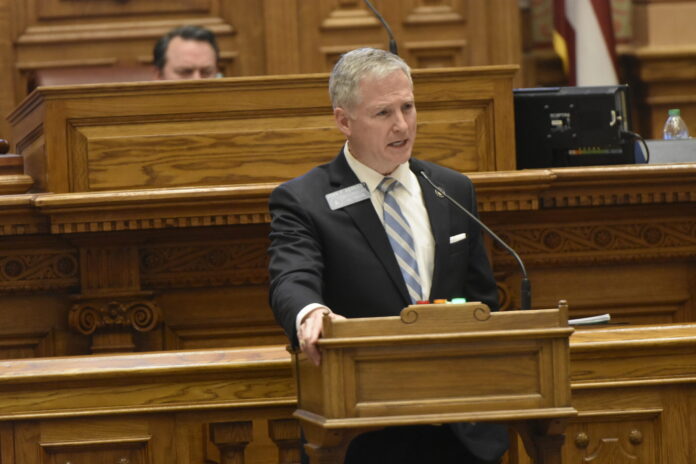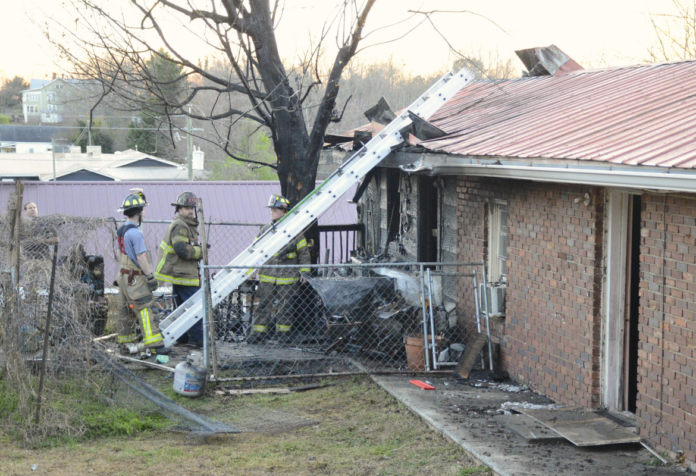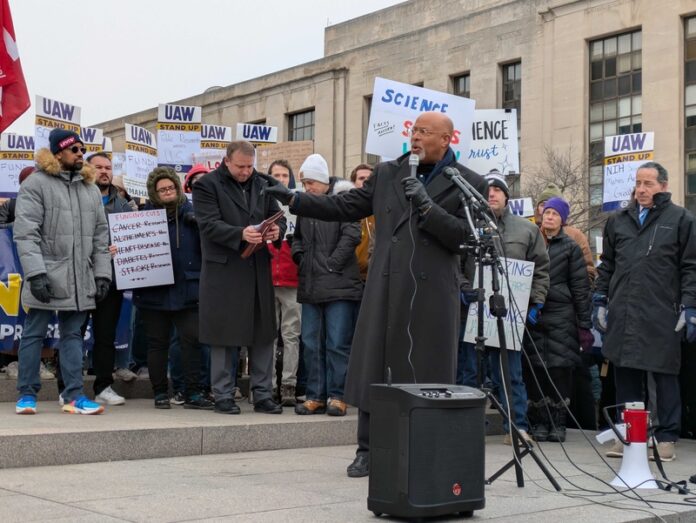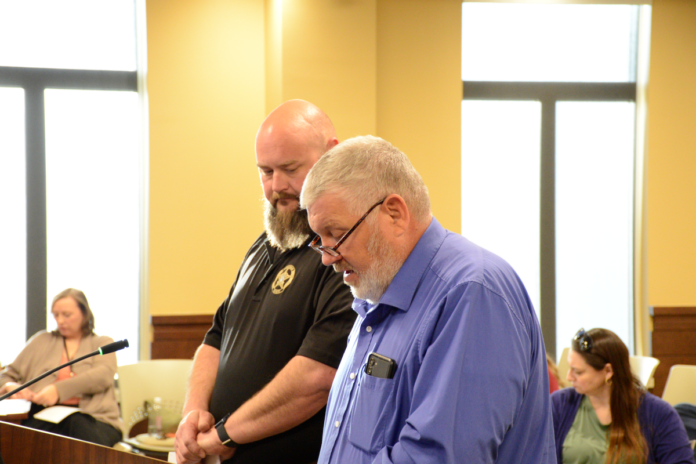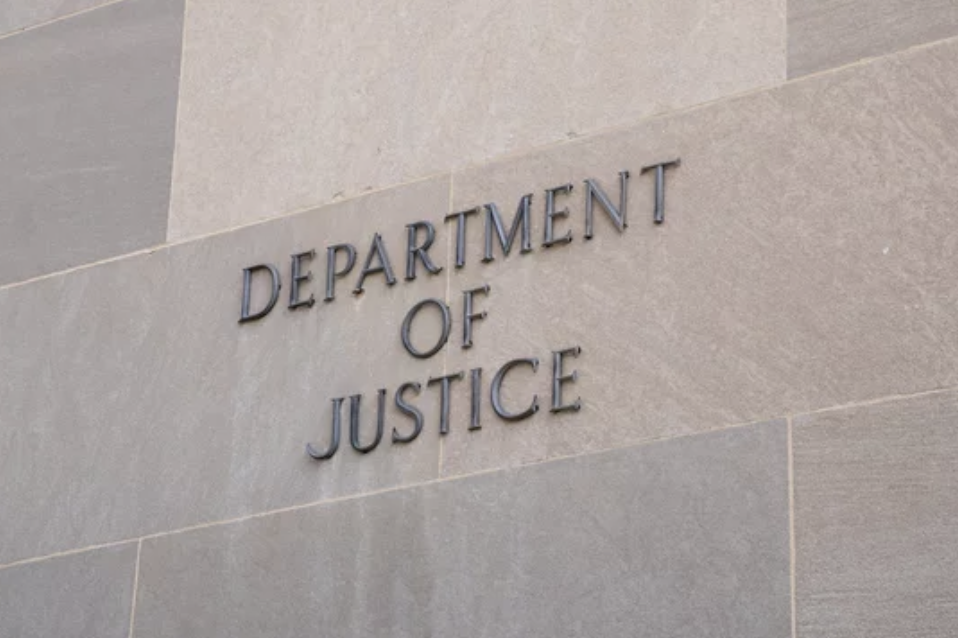WASHINGTON (States Newsroom) — The Trump administration has begun the process of reinstating tens of thousands of fired federal workers, though most are just being placed on administrative leave as the government cites the “burdens” of rehiring, court filings reviewed by States Newsroom show.
The documents also show agency by agency, the wide swath of firings that swept across the federal government in February and early March.
Last week, a federal judge in Maryland ruled that the recent terminations of probationary employees were illegal and ordered the administration to reinstate the workers across 18 federal agencies by 1 p.m. Eastern Monday. Nineteen Democratic attorneys general and the District of Columbia sued the administration over the firings.
The mass firings began in early February as part of President Donald Trump’s U.S. DOGE Service cost-cutting agenda. Elon Musk, a White House adviser and top donor to Trump’s reelection is the face of the temporary DOGE project, though the administration maintains he has no decision-making power.
According to the court filings late Monday, the agencies have returned almost 19,000 employees to administrative leave out of the 24,418 fired. The filings provided the most comprehensive list to date of the federal workforce downsizing that spanned February into March.
Judge James Bredar of the U.S. District Court for the District of Maryland ordered the agencies on Tuesday to provide a progress update by early next week. Bredar was appointed by former President Barack Obama in 2010 and confirmed by a Senate voice vote.
The lawsuit was filed March 6 by Democratic attorneys general in Arizona, California, Colorado, Connecticut, Delaware, District of Columbia, Hawaii, Illinois, Maryland, Massachusetts, Michigan, Minnesota, Nevada, New Jersey, New Mexico, New York, Oregon, Rhode Island, Vermont and Wisconsin.
Workers on leave, some ‘until further notice’
Some agencies, like the Departments of Commerce and Transportation, indicated that employees would only be on paid administrative leave temporarily until paperwork and other procedures were finished.
Others, including the U.S. Agency for International Development, have given employees paid administrative leave status “until further notice.”
The government argued that reinstating the terminated employees to full duty status “would impose substantial burdens” on the agencies and cause “turmoil for the terminated employees.”
“[T]hey would have to be onboarded again, including going through any applicable training, filling out human resources paperwork, obtaining new security badges, reinstituting applicable security clearance actions, receiving government furnished equipment, and other requisite administrative actions,” according to the filings from several department representatives.
But “nonetheless,” the agency representatives said they began complying with Bredar’s order even as the cancellation of terminations was a “very time and labor-intensive process,” wrote Mark D. Green, deputy assistant secretary for human capital, learning and safety at the Department of the Interior.
“The tremendous uncertainty associated with this confusion and these administrative burdens impede supervisors from appropriately managing their workforce. Work schedules and assignments are effectively being tied to hearing and briefing schedules set by the courts. It will be extremely difficult to assign new work to reinstated individuals in light of the uncertainty over their future status,” Green continued in his legal declaration required by Judge Bredar.
The agency representatives also wrote, “employees could be subjected to multiple changes in their employment status in a matter of weeks” if an appellate ruling reverses the lower court order.
The Trump administration appealed the district court ruling Friday to the 4th Circuit Court of Appeals.
California judge issues warning
The March 13 temporary restraining order out of Maryland was the second on that date mandating agencies rehire terminated workers. A federal judge in California separately ordered the government to reinstate thousands of employees at six federal agencies.
District Judge William Alsup in the Northern District of California warned in a court filing late Monday that the agencies must comply by fully returning employees to their jobs.
“The Court has read news reports that, in at least one agency, probationary employees are being rehired but then placed on administrative leave en masse. This is not allowed by the preliminary injunction, for it would not restore the services the preliminary injunction intends to restore,” Alsup wrote, requesting a status report Tuesday. Alsup was appointed by former President Bill Clinton in 1999 and confirmed by a Senate voice vote.
The Trump administration quickly appealed the California ruling last week to the U.S. Appeals Court for the 9th Circuit.
A three-panel judge for the 9th Circuit Monday ruled 2-1 to deny the Trump administration’s emergency request to block the workers’ reinstatement.
Employees new on the job
Probationary employees were targeted by the Office of Personnel Management on the first day of Trump’s second presidency, according to court documents.
The employees, who are within one or two years of being hired or beginning a new position, have “extremely limited protections against termination,” agency representatives wrote.
The Office of Personnel and Management sent emails Jan. 20 to department heads stating that “agencies should identify all employees on probationary periods” and “should promptly determine whether those employees should be retained at the agency,” according to the court filing.
Agency by agency list
Department and agency representatives detailed the following termination numbers in the Monday filings (not all agencies provided total numbers of probationary employees):
-
Health and Human Services: 3,248 of its 8,466 probationary workers were placed on administrative leave between Feb. 15 and March 13 (and remain on extended leave); 88 were subsequently fired and placed back on leave as of Monday.
-
Environmental Protection Agency: 419 probationary employees were terminated between Feb. 14 and Feb. 21. “Most” were returned to paid administrative leave Monday. Some who were in “unpaid leave status” were returned to that status.
-
Energy: 555 were terminated “on or around” Feb. 13 and Feb 14. All 555 were returned Monday to retroactive administrative leave status “that will continue until their badging and IT access are restored, at which time they will be converted to an Active Duty status.”
-
Commerce: 791 of the agency’s roughly 9,000 probationary employees were terminated up until March 3. Twenty-seven were reinstated soon after, and 764 were placed back on paid administrative leave Monday. The agency plans to move them to full duty status within a week, according to the filing.
-
Homeland Security: 313 employees were terminated through March 14. With a few exceptions of employees who resigned or declined to return, DHS placed 310 back on paid administrative leave.
-
Transportation: 788 employees were terminated between Feb. 14 and Feb. 24. DOT informed 775 that they’ve been placed on paid administrative leave until Wednesday. “The Department of Transportation will coordinate the specifics of their return, including the restoration of their government equipment and Personal Identity Verification (PIV) card,” according to the filing.
-
Education: Without providing specific dates, the department terminated 65 of its 108 probationary employees before Judge Bredar’s March 13 order. All have now been placed on paid administrative leave.
-
Housing and Urban Development: The agency terminated 312 of its 549 probationary employees on Feb. 14. About 299 are being brought back “temporarily” on administrative leave.
-
Interior: As of Monday night, Interior had reinstated roughly 1,540 of the 1,710 workers fired on Feb. 14.
-
Labor: 170 were terminated but reinstated before March 7.
-
Consumer Financial Protection Bureau: 117 employees were terminated between Feb. 11 and Feb. 13. All were notified Sunday that they “will be immediately placed on administrative leave status while the CFPB continues to act to comply with the TRO and/or employees are to be assigned work by management/supervisors,” according to the filing.
-
Small Business Administration: 304 of the SBA’s 700 probationary employees were terminated between Feb. 11 and Feb. 25. The agency was unable to notify seven employees about reinstatement. Roughly 164 were returned to non-pay intermittent status, while the rest were returned to paid administrative leave.
-
Federal Deposit Insurance Corporation: 156 of its 261 probationary employees were terminated between Feb. 18 and 19; 151 were placed on paid administrative leave as of Monday.
-
USAID: 270 of the agency’s 295 probationary employees were fired March 7. All have been reinstated to paid administrative leave.
-
General Services Administration: 366 of its 812 probationary employees were terminated between Feb. 13 and March 7. While two declined reinstatement, 364 were placed Monday on paid administrative leave.
-
Treasury: 7,605 of Treasury’s 16,663 probationary employees were fired between Feb. 19 and March 7. All have been reinstated to paid administrative leave status.
-
Agriculture: 5,714 probationary employees were terminated between Feb. 13 and 17. The department is “working diligently” to restore employees to active duty status, according to the filing. The employees have been returned to paid or unpaid leave as of March 12.
-
Veterans Affairs: 1,683 of the VA’s roughly 46,000 probationary employees were terminated between Feb. 13 to 24. All were placed on paid administrative leave.
USAID ruling
In a separate case against Trump and DOGE’s workforce-slashing agenda, a federal judge in Maryland on Tuesday ruled Musk likely violated the Constitution when orchestrating the shutdown of the U.S. Agency for International Development, or USAID.
Judge Theodore David Chuang for the U.S. District Court in the District of Maryland demanded Musk and any personnel working for DOGE refrain from any further action related to dismantling USAID.
Chuang also ordered Musk and DOGE to reinstate computer and email access for all current USAID employees and contractors within seven days. Additionally, he ordered Musk and DOGE to strike an agreement within 14 days that would reopen the former USAID headquarters in Washington, D.C.
Musk’s DOGE personnel forced their way into the humanitarian agency’s headquarters in early February ahead of the mass firings.
The shuttering of U.S. humanitarian missions around the world sparked protests in the nation’s capital.
Chuang, an Obama appointee, was approved by the Senate in 2014 in a 53-42 vote.
The White House slammed the court order Tuesday, alleging that “rogue judges are subverting the will of the American people in their attempts to stop President Trump from carrying out his agenda.”
“If these Judges want to force their partisan ideologies across the government, they should run for office themselves. The Trump Administration will appeal this miscarriage of justice and fight back against all activist judges intruding on the separation of powers,” said White House spokesperson Anna Kelly in an emailed statement.
Earlier Tuesday, U.S. Supreme Court Chief Justice John Roberts issued a rare statement following Trump’s morning social media attack on federal judges, calling for their impeachment.
“For more than two centuries, it has been established that impeachment is not an appropriate response to disagreement concerning a judicial decision,” Roberts said. “The normal appellate review process exists for that purpose.”




